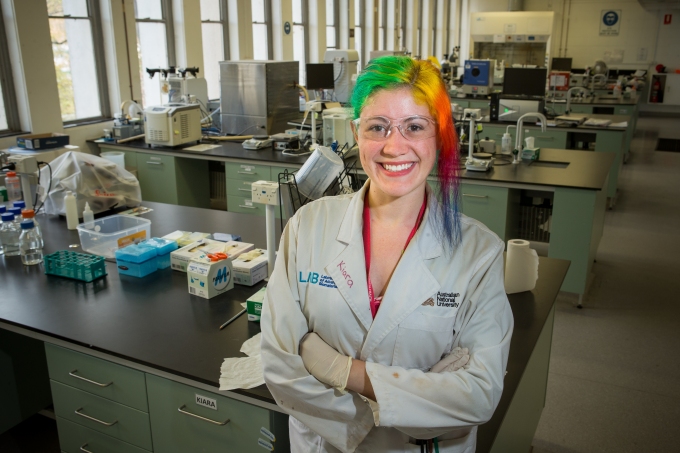A biomedical engineer working on how to heal damaged brain tissue from The Australian National University (ANU) has been named one of Australia’s official Superstars of STEM.
The ANU College of Engineering and Computer Science researcher Dr Kiara Bruggeman is one of 60 brilliant women in science, technology, engineering and mathematics (STEM) selected for this acclaimed national media training program.
Supported by the Australian Government’s Department of Industry, Science, Energy and Resources, these next 60 Superstars of STEM will participate in the program in 2021 and 2022.
Dr Bruggeman said she was thrilled to have been chosen from a very competitive national field, and is excited to promote her passions of biomaterials and STEM (science, technology, engineering, and mathematics) education.
Dr Bruggeman makes materials that mimic healthy brain tissue on a nano scale. These can then be used to trick stem cells into becoming new brain tissue after brain damage from stroke or neurodegenerative diseases.
“I’d like to get my message and my work out there. And to learn the skills that I need to keep getting it out there.
“We tend to end up doing a lot of communication and outreach as one-off things as an aside to our research. But it’s really very important that we keep doing that all the time. I want to learn how to make that a pattern, and encourage others to do so too, so that our work can keep reaching the people that it needs to reach,” said Dr Bruggeman.
She is keen to use her new platform and training to make science accessible to the general public.
“It is really important to be able to get the science that we’re working on in the lab out to the people. Because you can so easily misconstrue science and we’re not ever going to have a good positive impact if people don’t understand and trust what we’re doing,” said Dr Bruggeman.
Science & Technology Australia Chief Executive Officer Misha Schubert said the program gave women in STEM stronger skills and confidence to step into expert commentary roles in the media.
“It’s hard to be what you can’t see,” she said. “Women are still seriously under-represented in STEM leadership roles.
“The Superstars of STEM program sets out to smash stereotypes of what a scientist, technologist, engineer or mathematician look like – these powerful role models show girls that STEM is for them.
“Sustaining this type of program for the long-term is more important than ever amid the challenges of the COVID-19 pandemic on women in the STEM workforce.”

